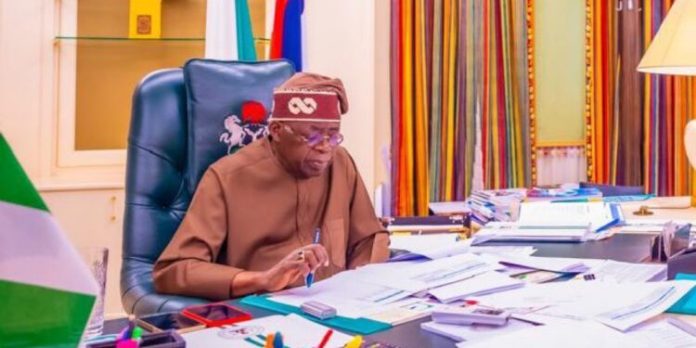Nigeria’s fiscal deficit stands at N7.05 trillion as of the third quarter of 2024, according to President Bola Ahmed Tinubu during his presentation of the 2025 Budget of Restoration to the National Assembly on December 18, 2024.
The deficit reflects the gap between revenue and expenditure, underlining the government’s reliance on borrowing to meet financial obligations amid ambitious spending plans.
President Tinubu reports that Nigeria generates N14.55 trillion in revenue by Q3 2024, achieving 75% of the annual target. Meanwhile, government expenditure reaches N21.60 trillion during the same period, representing 85% of the budgeted amount. This creates a fiscal gap of approximately N7 trillion.
The 2024 budget is set at N47.9 trillion with projected revenue of N34.8 trillion, leaving a record fiscal deficit of N13.1 trillion. These figures align with the government’s Medium-Term Expenditure Framework (MTEF).
The President acknowledges the efforts to stabilize Nigeria’s economy amidst domestic and global challenges. However, the shortfall in revenue highlights the need for:
- Improved fiscal discipline,
- Stronger tax collection measures, and
- Alternative financing strategies to reduce dependence on debt.
Government spending on infrastructure, security, and human capital development remains a priority to drive economic recovery and growth.
Despite the fiscal challenges, Nigeria’s economy shows signs of gradual recovery in 2024:
- GDP Growth: The economy expands by 3.46% in Q3 2024 compared to 2.54% in Q3 2023.
- Foreign Reserves: Reserves currently stand at $42 billion, providing a buffer against external shocks.
- Trade Surplus: Exports drive Nigeria’s trade surplus to N5.8 trillion, according to the National Bureau of Statistics.
The 2025 budget stands at N47.90 trillion, with a focus on stabilizing inflation, fostering inclusive growth, and ensuring economic stability. However, the fiscal deficit remains a critical issue as it exceeds the 3% GDP cap set by the Fiscal Responsibility Act (FRA) of 2007.
The fiscal deficit for 2025 is projected at N13.08 trillion, up from N9.18 trillion in 2024. The increase is linked to higher wage bills, pension adjustments, and rising debt servicing costs.
The government plans to rely primarily on domestic borrowing to finance the deficit due to limited external funding options. Efforts are underway to gradually bring deficit levels in line with FRA thresholds in the medium term.
President Tinubu emphasizes his administration’s commitment to addressing these fiscal challenges while ensuring sustainable economic growth.













